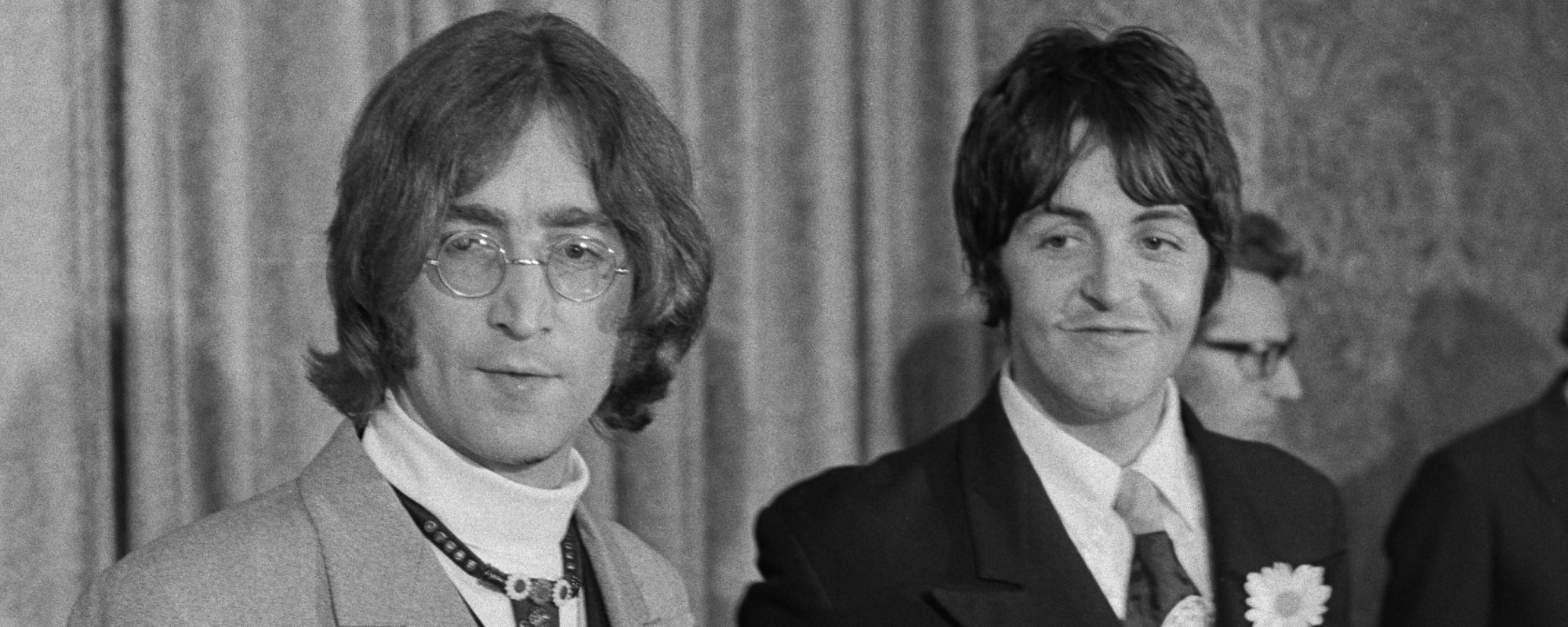Having spent the majority of his adult life in the music industry, Paul McCartney watched the industry change numerous times. With each new decade, there seemed to be some new style or invention to make the life of a singer, musician, or even songwriter easier. But recently, McCartney, like countless others, watched the explosion of AI. Harboring the ability to write, record, and release music, many criticized the use of AI in the entertainment industry. And wanting his voice heard, McCartney released a new song in protest that featured only silence.
Videos by American Songwriter
While helping create songs like “Hey Jude”, “Let It Be”, and “Yesterday”, McCartney’s new song lacked his signature style and sound. Although he might take offense to such criticism, that was the point. With AI companies using songs, movies, and books to train their technology, artists aren’t being fairly compensated.

Wanting to hopefully change that, McCartney will release Is This What We Want. According to the website, “the silent album from more than 1,000 musicians protesting the UK government’s proposed changes to copyright law.”
[RELATED: 3 Underrated Paul McCartney Singles That Don’t Get Enough Praise]
Paul McCartney Is Worried About Young Creatives
That’s right, not just one song, but all the tracks on the album will be completely silent. While most buy an album to enjoy the music, the LP offers fans the chance to take a stand alongside stars like Kate Bush, Annie Lennox, Damon Albarn, Billy Ocean, Ed O’Brien, Dan Smith, The Clash, Mystery Jets, Jamiroquai, Imogen Heap, Yusuf / Cat Stevens, Riz Ahmed, Tori Amos, Hans Zimmer, James MacMillan, Max Richter, John Rutter, and more.
Discussing the dangers of AI, McCartney warned, “We[’ve] got to be careful about it because it could just take over and we don’t want that to happen, particularly for the young composers and writers [for] who, it may be the only way they[’re] gonna make a career. If AI wipes that out, that would be a very sad thing indeed.”
Like many creatives, McCartney wanted the power to produce to remain in the hands of people, not machines. But with the landscape rapidly changing and AI releasing hit songs, it seems that the line between human artistry and automated imitation is becoming dangerously thin.
With more and more singers, musicians, actors, and writers taking a stand against AI, the movement behind silent protests like McCartney’s continues to grow in hopes of protecting the future of human creativity.
(Photo by Danny Lawson/PA Images via Getty Images)












Leave a Reply
Only members can comment. Become a member. Already a member? Log in.